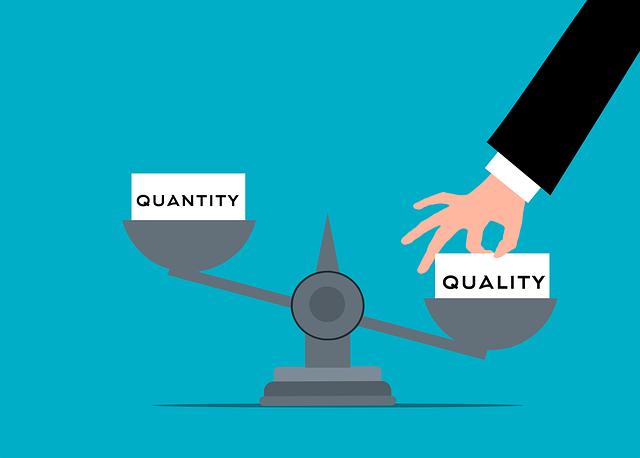Wegovy and Ozempic, both GLP-1 receptor agonists, offer prescription weight management for adults with obesity or type 2 diabetes. While effective for weight loss and glucose control, they differ in administration, cost, and side effects. Patient preferences regarding convenience, efficacy, and side tolerability are crucial for treatment success. Clinical studies show Wegovy is superior for substantial weight loss and glycemic control, while Ozempic excels in long-term maintenance after dosage reduction. Understanding regional availability, insurance coverage, and patient assistance programs is essential for affordability. Healthcare providers tailor strategies based on individual preferences, aiming to improve adherence and outcomes through personalized approaches comparing Wegovy versus Ozempic.
“In the quest for effective weight management, patient preferences for Wegovy or Ozempic have emerged as key considerations. This comprehensive guide explores these two semaglutide-based treatments, dissecting their mechanisms, benefits, and real-world applications. Understanding Wegovy’s appetite control prowess and Ozempic’s insulin sensitivity enhancement offers valuable insights. Through clinical studies and patient testimonials, we compare efficacy and safety, highlighting accessibility and cost concerns. Moreover, personalized approaches to weight management are discussed, emphasizing the importance of tailored strategies for optimal results.”
Understanding Wegovy and Ozempic: A Comprehensive Overview

Wegovy and Ozempic are both prescription medications designed for weight management in adults with obesity or overweight, accompanied by at least one weight-related condition, such as type 2 diabetes. They belong to a class of drugs known as glucagon-like peptide-1 (GLP-1) receptor agonists, which work by mimicking the effects of a natural hormone in your body that helps regulate blood sugar levels and increases feelings of fullness, leading to reduced appetite.
When considering Wegovy versus Ozempic, it’s important to understand their mechanisms of action, potential benefits, and side effects. Wegovy (semaglutide) is administered via subcutaneous injection once weekly, while Ozempic (semaglutide) is also given through injection but at a different dosage and frequency. Both medications have shown effectiveness in helping individuals lose weight and manage diabetes, but they may differ in terms of ease of use, cost, and specific side effects. Patients should discuss their preferences and concerns with their healthcare providers to determine which medication aligns best with their individual needs.
Patient Needs and Preferences: Why Choice Matters

Patient preferences play a significant role in their healthcare journey, especially when it comes to weight management medications like Wegovy and Ozempic. The decision between these two drugs isn’t just about efficacy; it’s deeply rooted in individual needs and personal choices. Some patients might prioritize convenience, favoring one that offers less frequent injections or has a different administration method. Others may have specific side effect concerns that lean them towards one option over the other.
Understanding these preferences is crucial because they can impact treatment adherence and overall success. For instance, patients who find a particular medication’s effects more noticeable or pleasing might be more motivated to stick to their treatment plan. Conversely, those who dislike the experience of taking one drug but tolerate the other well could benefit from exploring alternative routes or dosing schedules. Ultimately, giving patients a sense of control over their choice fosters engagement and can lead to better health outcomes in the context of Wegovy versus Ozempic.
The Role of Semaglutide in Weight Management

Semaglutide, the active ingredient found in both Wegovy and Ozempic, plays a pivotal role in modern weight management. As a long-acting glucagon-like peptide-1 (GLP-1) receptor agonist, it mimics the effects of the natural hormone GLP-1, which is released after eating. This not only helps to reduce appetite and delay gastric emptying but also stimulates insulin secretion in a glucose-dependent manner. In the context of Wegovy versus Ozempic, both medications utilize semaglutide to achieve weight loss, but they differ slightly in dosage and administration methods.
For individuals seeking sustainable weight management, understanding how semaglutide works is essential. Clinical trials have shown that this drug can lead to significant reductions in body weight compared to placebo. Furthermore, its effects on glucose control make it a safe and effective option for people with type 2 diabetes who are looking to manage both their blood sugar levels and their weight. The choice between Wegovy and Ozempic ultimately depends on personal preference and medical advice regarding the most suitable dosage and administration route.
Wegovy: Unlocking Appetite Control

Wegovy, a novel weight-management medication, has gained significant attention for its unique approach to appetite control. Unlike traditional weight loss pills that focus on metabolism or fat burning, Wegovy works by reducing appetite and increasing feelings of fullness. This dual action makes it a compelling choice for patients seeking a more natural way to manage their weight. In clinical trials, Wegovy demonstrated superior efficacy in promoting significant weight loss compared to placebo, setting a new standard in the market.
When comparing Wegovy to established medications like Ozempic, understanding its advantages becomes clearer. Ozempic, an injectable glucagon-like peptide-1 (GLP-1) receptor agonist, is primarily indicated for type 2 diabetes management and has shown some weight loss benefits as a secondary effect. However, Wegovy’s focus on appetite control offers a more direct and potentially more effective strategy for sustainable weight management in obese individuals or those with overweight and related conditions.
Ozempic: Enhancing Insulin Sensitivity

Ozempic, or semaglutide, is a groundbreaking medication that has been transforming the lives of individuals with type 2 diabetes. Its primary mechanism of action lies in its ability to enhance insulin sensitivity and improve glucose control. By mimicking a natural hormone, Ozempic stimulates the release of insulin in response to rising blood sugar levels, while also slowing down the rate at which the stomach empties food. This dual action results in better blood sugar management and can lead to significant weight loss—a key advantage when considering Wegovy versus Ozempic for weight management.
This medication’s effects on insulin sensitivity make it an attractive option for patients who may prefer a once-weekly injection over daily insulin doses, as required by some other treatments. Its convenience and potential for long-term blood sugar control have made it a popular choice among healthcare providers and patients alike in the ongoing discussion of Wegovy versus Ozempic for diabetes management.
Clinical Studies: Comparing Efficacy and Safety

Clinical studies have provided valuable insights into the efficacy and safety of both Wegovy (semaglutide) and Ozempic (semaglutide) in weight management. When comparing these two semaglutide medications, several key findings emerge. Both drugs demonstrate significant reductions in body weight compared to placebo, with clinical trials showing an average 8-10% weight loss over a period of 56 weeks. However, in terms of specific outcomes, Wegovy has shown slightly greater effects on body weight reduction and glycemic control, making it a potentially more effective choice for some patients.
Safety profiles for both medications are similar, with the most common adverse effects including nausea, diarrhea, vomiting, and constipation. While these side effects are generally manageable, they highlight the need for careful patient selection and monitoring. In the context of Wegovy versus Ozempic, clinical studies suggest that while both treatments offer beneficial outcomes, Wegovy might be preferable for patients seeking maximal weight loss benefits and improved glycemic control, especially those with type 2 diabetes.
Real-World Experiences: Patient Testimonials

Many patients struggling with weight management have shared their real-world experiences with Wegovy and Ozempic, providing valuable insights into which medication aligns better with their preferences. These testimonials highlight the significance of individual experiences in choosing between these two semaglutide medications. Some patients praise Wegovy for its faster results, noting a noticeable weight loss within the first few weeks of treatment. They appreciate the convenience of once-weekly injections and report less frequent side effects compared to Ozempic.
Conversely, those who have used Ozempic emphasize its long-term effectiveness in maintaining weight loss. Patients on this medication often share stories of sustained results even after reducing their dosage. While some initially struggled with the daily injection schedule, they eventually adapted, citing the consistent support from healthcare providers as a significant factor in their decision to stick with Ozempic. The choice between Wegovy and Ozempic thus becomes a personal journey, influenced by immediate results, convenience, and the overall patient experience.
Accessing Treatments: Availability and Cost Considerations

Accessing treatments for weight management is a significant step for patients, and understanding the availability and cost considerations between Wegovy and Ozempic is essential. Both medications have gained popularity as effective semaglutide-based injectables for managing obesity. However, patients may face challenges in obtaining these prescriptions due to factors such as regional availability, insurance coverage, and out-of-pocket expenses.
When comparing Wegovy versus Ozempic, the initial cost can vary based on pharmacy and insurance policies. Patients should inquire about co-pays, deductibles, and any patient assistance programs offered by manufacturers. Additionally, the convenience of accessing these medications plays a role; some pharmacies may stock one or the other more readily, impacting patients’ decisions and adherence to their prescribed treatments.
Personalized Approaches: Tailoring Weight Management Strategies

In the quest for effective weight management, personalized approaches are becoming increasingly recognized as key to patient success. When comparing Wegovy and Ozempic, healthcare professionals can tailor strategies based on individual preferences and unique needs. Both medications offer substantial benefits in terms of appetite regulation and blood sugar control, but patients may have differing reactions and comfort levels with each.
For instance, some individuals might prefer the once-weekly injection schedule of Wegovy, while others could find Ozempic’s more frequent, twice-weekly dosing easier to incorporate into their daily routines. Additionally, side effects can vary, with one medication potentially suiting those seeking a more subtle impact, while the other might be better suited for patients already committed to significant lifestyle changes. This individualized approach ensures that treatment plans align seamlessly with patient expectations and lifestyles, fostering higher adherence rates and ultimately leading to improved outcomes in weight management.
